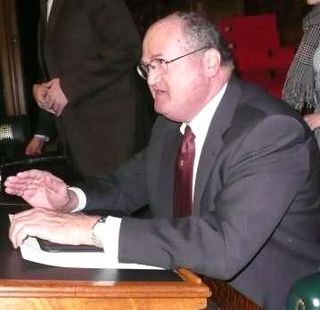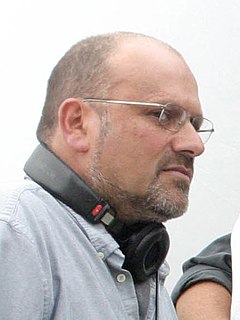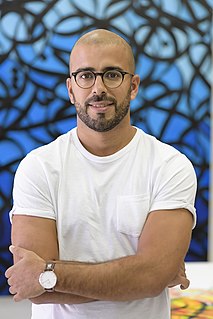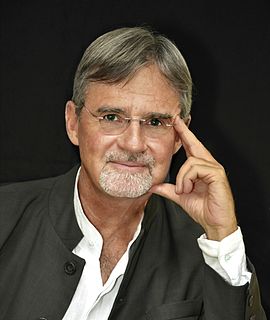A Quote by Robert Fisk
When I arrived in Beirut from Europe, I felt the oppressive, damp heat, saw the unkempt palm trees and smelt the Arabic coffee, the fruit stalls and the over-spiced meat. It was the beginning of the Orient. And when I flew back to Beirut from Iran, I could pick up the British papers, ask for a gin and tonic at any bar, choose a French, Italian, or German restaurant for dinner. It was the beginning of the West. All things to all people, the Lebanese rarely questioned their own identity.
Quote Topics
All People
All Things
Any
Arabic
Arrived
Ask
Back
Bar
Beginning
Beirut
British
Choose
Coffee
Could
Damp
Dinner
Europe
Felt
Flew
French
Fruit
German
Gin
Gin And Tonic
Heat
Identity
Iran
Italian
Lebanese
Meat
Oppressive
Orient
Over
Own
Palm
Palm Trees
Papers
People
Pick
Questioned
Rarely
Restaurant
Saw
Things
Tonic
Trees
Up
West
Related Quotes
I need to have one foot inside and one foot outside a culture to be able to write about it. For example, I couldn't write about the gay culture if I were wholly inside or outside of it. Finding that distance is always interesting. I jokingly say that when I'm in America, I write about Beirut, and when I'm in Beirut, I write about America. A lot of my friends in Beirut think I'm more American than Lebanese. Here, my friends think of me more as Lebanese.
I was born into a Turkish family that had acquired Italian citizenship. Many members of the family subsequently became British, French, Brazilian, and German, so there was a bit of everything. It was not uncommon for people in the family to speak seven languages: English, French, Ladino, Italian, Turkish, Arabic, and even Greek.
The Orient and Islam have a kind of extrareal, phenomenologically reduced status that puts them out of reach of everyone except the Western expert. From the beginning of Western speculation about the Orient, the one thing th orient could not do was to represent itself. Evidence of the Orient was credible only after it had passed through and been made firm by the refining fire of the Orientalist’s work.
For Beirut it was the civil war, and the dividing of the city - which is something that is shared among Beirut, Berlin and Baghdad. And Cairo is a city that has a scar that was born after many decades of dictatorship - oppression shaped the people's lives, and forced people to grow up accompanied by fear. I belong to a generation that, whether we like it or not, was shaped by this fear of death or loosing the people you love, the threat of war, not allowed to be yourself, forced to be silent - as you watch ignorance occupying everything around you. And this is a deep scar.
It was important for me to show that Beirut and Lebanon were once the pearl of the Middle East. Beirut was once called the Paris of the Middle East and to have that feeling of a destroyed place that once was beautiful and glamorous and visually impressive was important. I think it's even sadder to get the feeling that this country, and indeed the whole Middle East, could have been a major force in the world if people would get together and forget about destruction, death and wars. But unfortunately, it's not happening yet.
I once found myself conspiring with a British Cabinet Minister as to how we might persuade Her Majesty's Treasury to cough up more money for the British Travel advertising in America. Said he, "Why does any American in his senses spend his vacation in the cold damp of an English summer when he could equally well bask under Italian skies? I can only suppose that your advertising is the answer." Damn right.
I think in Arabic at times, but when I'm writing it's all in English. And I don't try to make my English sound more Arabic, because it would be phony - I'm imagining Melanie Griffith trying to do a German accent in Shining Through. It just wouldn't work. But the language in my head is a specific kind of English. It's not exactly American, not exactly British. Because everything is filtered through me, through my experience. I'm Lebanese, but not that much. American, but not that much. Gay, but not that much. The only thing I'm sure of, really, is that I'm under 5'7".
I made a vow that I wouldn't be tempted by what could happen to me if I went to Europe. I thought, 'You could be absorbed in it - it's so seductive, you might lose your own search for identity.' Then, when I did finally go to Europe, I was able to resist it because I had established my own identity.
The thing is, what most people don't understand is that there are so many of us growing up in Europe who are not free to be ourselves. We're not allowed to be who we are. We are not free to marry or to be in relationships with people that we choose. We can't even pick our own career. This is the norm in the Muslim heartlands of Europe.
































